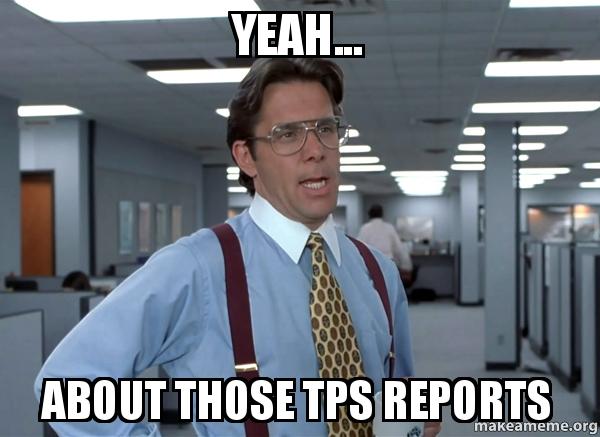Status Reports: How Many Do We Need?
Software Developer Productivity Killer #5: The Dreaded Status Reports
Hello again, digital navigators! We’ve tangoed with ‘useless meetings‘, battled the open-plan zombies, and sailed the treacherous seas of ‘technical debt‘. But hold onto your keyboards, because now we’re diving into the realm of… (drumroll, please)… status reports. And not just one or two. Oh no, it seems everyone and their digital assistant wants one!
📝 The Story of Bob, The Status Reporter
Bob, our fictional yet oh-so-relatable developer, has had a week. He’s juggled tickets, diligently added comments, rolled out code changes, and executed pull requests with the grace of a ballet dancer. Each task gets its neat little description, every commit explains the changes, and pull requests detail the grand picture while referencing back to the ticket. But wait! There’s more!
Enter the Pointy-Haired Boss: “Bob, could you whip up a summary of this week’s progress? And oh, remember those TPS reports?” (If you’ve seen Office Space, you know the pain. If you haven’t, go watch it; it’s a workplace rite of passage). But here’s the rub: isn’t a ticket a status report? Isn’t a commit a status report? Isn’t a pull request… oh, you get the idea.
∞ The Infinite Loop of Status Reports
- The Redundancy Factor: Status reports, on their own, aren’t evil. But when they’re layered atop daily standups, PR descriptions, ticket annotations, and commit comments…it starts to feel like someone’s playing a cruel joke. “Bob, we’re gonna need another status report on your status reports.”
- Managerial Middlemen: Is the manager’s role merely to be a carrier pigeon, ferrying status notes between developers and higher-ups? It seems even carrier pigeons have more freedom.
- Time = Code: Every moment a developer spends summarizing their summaries is time they aren’t coding, innovating, or resolving bugs. The business cost of this is more significant than it appears.
👀 Status Quo No More
- The Value of Transparency: The beauty of tickets, commits, and PRs is their transparency. One can easily delve into the history, the changes, and the progress. It’s all there, like a digital journal of a developer’s journey.
- Empower Managers with Tools: Instead of burdening devs with ‘one-more-report’, why not equip managers with tools to derive insights directly from existing data?
- Automate with AI: Here’s a wild thought: What if we could have intelligent systems that aggregate all these updates and present them in a digestible format? Oh, wait! At Facet Digital, we’re doing precisely that! Take that, TPS reports!
💡 Conclusion
In an era of digital transformation, redundancy is the last thing we need. Bob should be crafting digital masterpieces, not drowning in paperwork. And managers? They should be guiding, assisting, and inspiring, not merely playing data tag.
If you want to ensure your devs are more Bob-like (pre-pointy-haired boss phase), consider integrating intelligent tools. Call Facet Digital to get your development processed dialed in early. Because the best status report is one that writes itself!
✋ Haven’t met Bob in his previous adventures? Well, he’s been battling ‘useless meetings’, dodging the ‘open-plan distractions’, and chipping away at ‘technical debt’. And of course, who could forget his escapade with the zombie code? Stay tuned, because Bob’s journey through the wilds of software development isn’t over yet.



